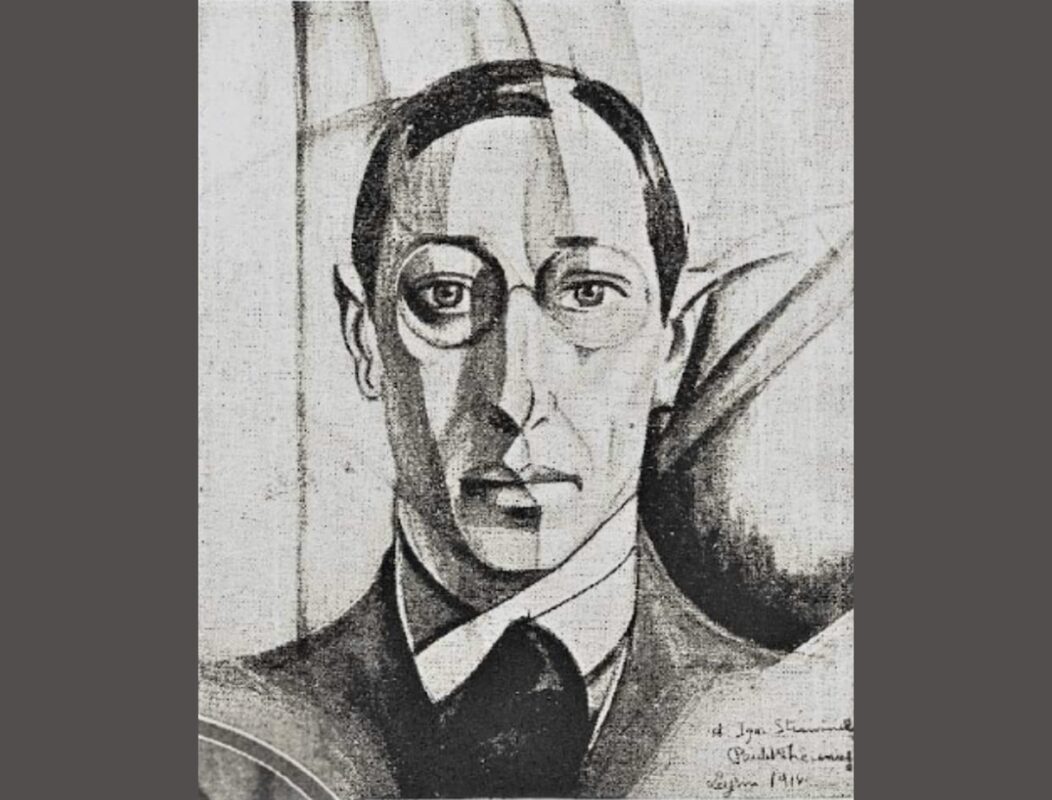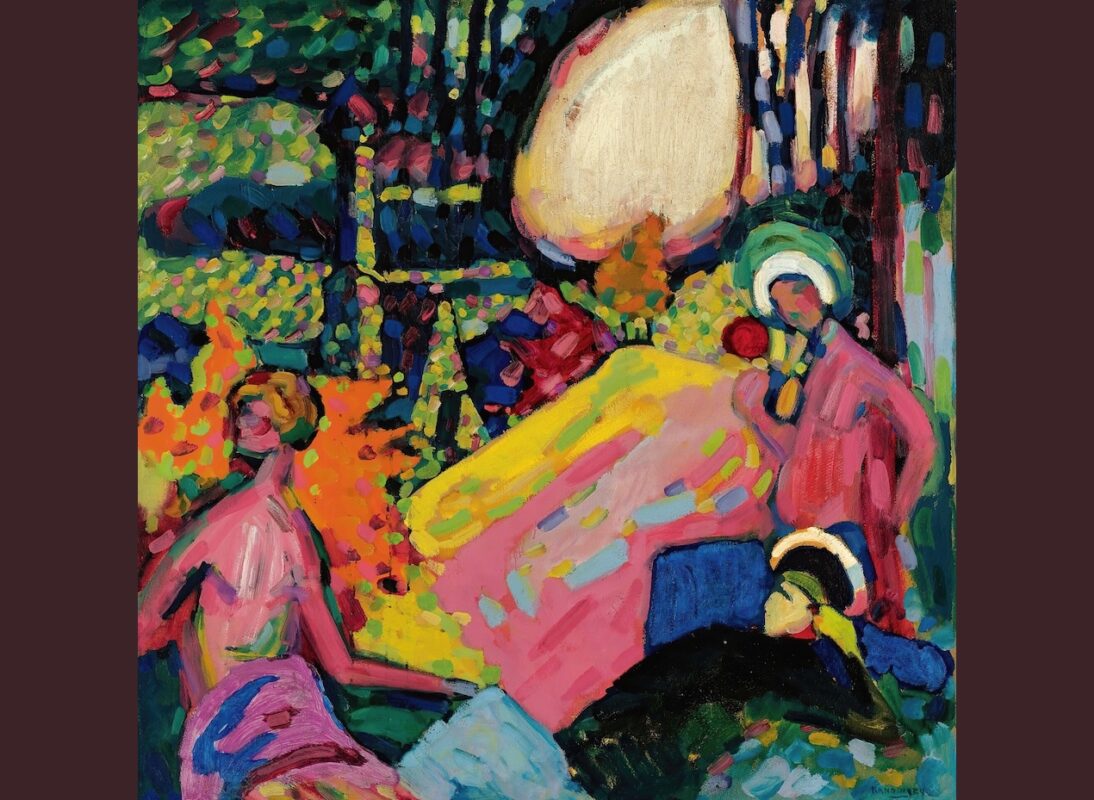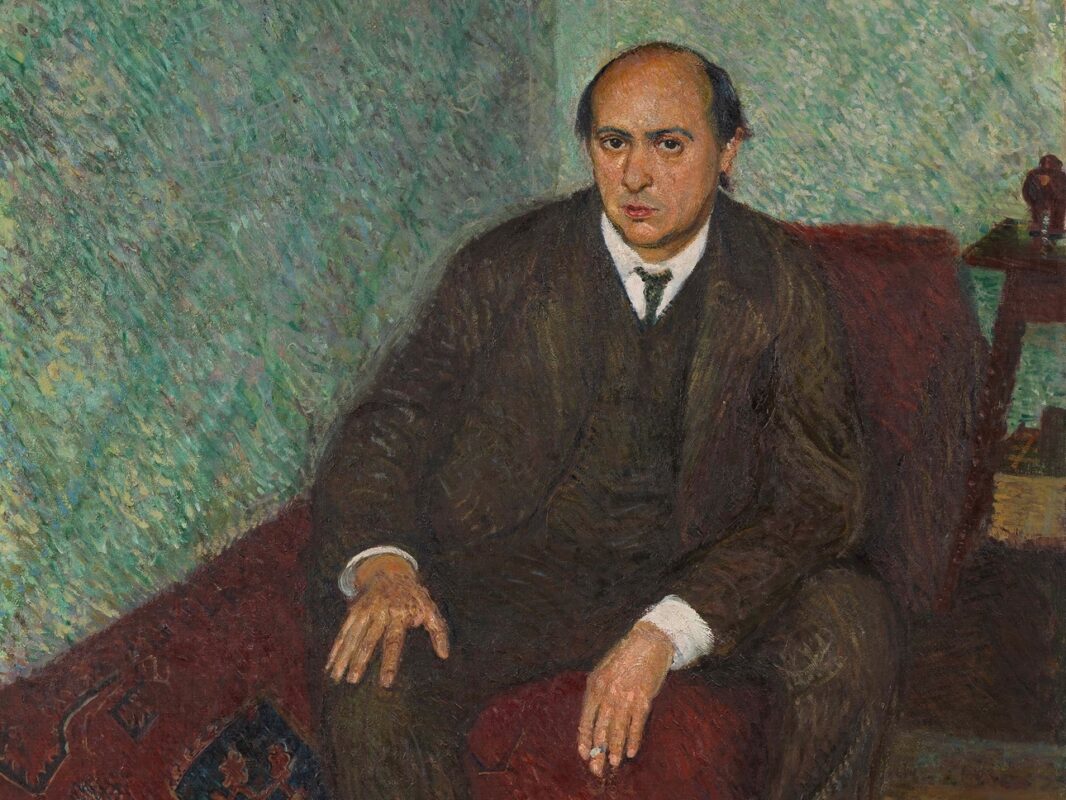Composing for women
Several books have recently been published with the aim of restoring women composers to their rightful place in music history.
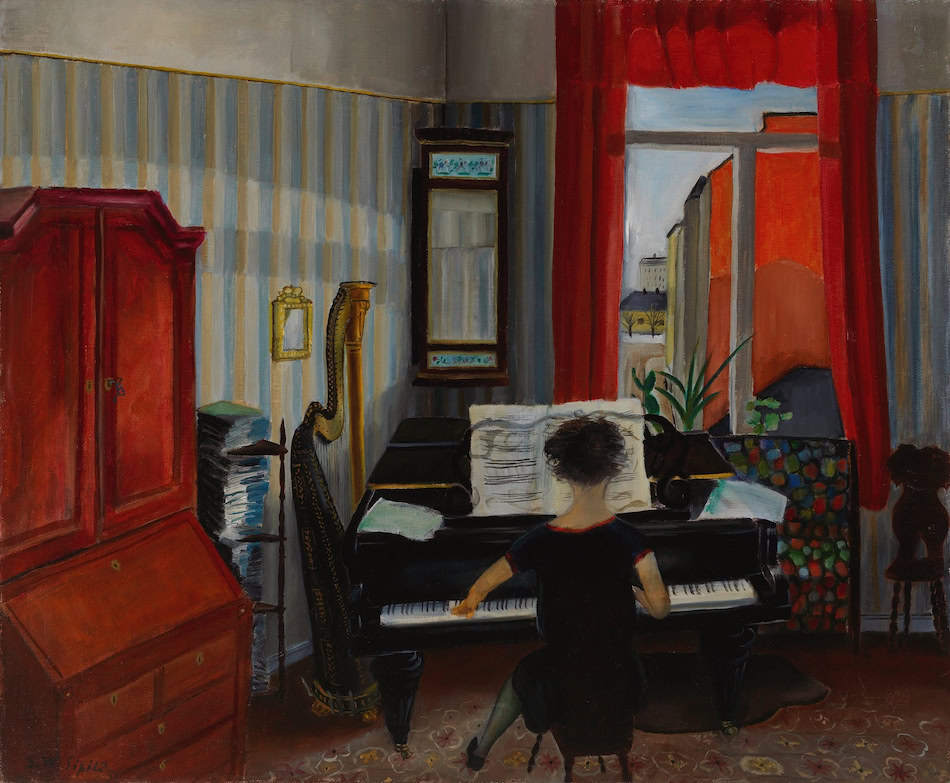
Long neglected, women composers of both past and present are gradually entering the repertoire, finally obtaining the place they rightfully deserve. Long confined to roles that hardly allowed them to assert themselves, they were not always able to give the full measure of their talent, many of them being denied access to the knowledge needed to compose, or having to accept that their works were neglected. Fortunately, others were able to make their voices heard against all odds, and more or less established themselves, despite the weight of outdated social and religious principles. In a landmark work, musicologist Guillaume Kosmicki presents the biographies and brief descriptions of 69 of the most interesting and representative female composers, whose work deserves a wide audience. In addition to offering a sort of chronological dictionary, the author has also written extensive and fascinating introductions to each period (Antiquity, Middle Ages, Renaissance, XVIIth century, etc.).e and XVIIIe centuries, Romanticism, the modern era and the contemporary period), illuminating summaries of the changing status of women musicians. This history of women's music will reveal many little-known aspects and overly neglected personalities, from Kassia of Constantinople, the oldest surviving female composer (like almost all ancient music, not a single note of Sappho's has survived), to Unsuk Chin and Clara Iannotta, via great composers such as Hildegard von Bingen (one of the few currently known to the general public), Barbara Strozzi, Louise Farrenc, Amy Beach, Galina Oustvolskaïa or Grażyna Bacewicz, or two exceptional talents that death mowed down too soon: Lili Boulanger and Vítězslava Kaprálová.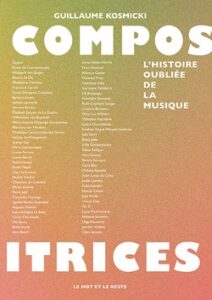 Guillaume Kosmicki: Compositrices. The forgotten history of music468 p., € 29.00, Éditions Le mot et le reste, Marseille 2023, ISBN 9782384310227
Guillaume Kosmicki: Compositrices. The forgotten history of music468 p., € 29.00, Éditions Le mot et le reste, Marseille 2023, ISBN 9782384310227
Among all these exceptional creators, Hélène de Montgeroult broke new ground with the 114 studies included in her monumental Complete course for teaching forte-piano She created a new genre at the turn of the 19th century.e century, transforming the manual exercise into genuine pieces of character, poetic and romantic. Technically, harmonically and melodically, some of these high-quality pieces prefigure Schubert, Mendelssohn, Chopin, Schumann (the latter's teacher, her future father-in-law Friedrich Wieck, used this method) or even Brahms, while others evoke memories of Bach, whom she revered, or of classicism. A great keyboard virtuoso, she also proved to be an excellent teacher, a fact that is reflected in the Full course was echoed, anticipating the piano playing techniques of the following decades. In terms of the psychology of learning, she emphasized pupil autonomy, close to the ideas of Rousseau and Pestalozzi's method. In 2006, musicologist Jérôme Dorival published a first monograph dedicated to Montgeroult. Since then, the deepening of his research and the desire to give greater importance to the commentary and analysis of his works have made it necessary to write this new monograph. Living at the heart of one of history's most turbulent periods, with a wealth of ideas, a love of freedom and an heir to the Enlightenment, the only woman to be appointed professor of the first class when the Paris Conservatoire de Musique was established in 1795, Jérôme Dorival sets her life, worthy of a novel, in its historical and sociological context. Thanks to the work of this biographer, Hélène de Montgeroult's work has been enjoying a welcome renaissance over the past twenty years, and her etudes richly deserve to become part of the standard repertoire. In Romont, a town close to the birthplace of her ancestors, a competition for young pianists bearing her name will see its second edition in November this year.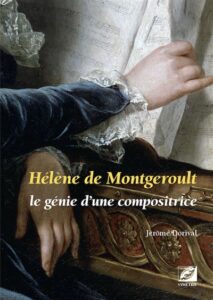
Jérôme Dorival: Hélène de Montgeroult, the genius of a composer, 460 p., € 39.00, Symétrie, Lyon 2024, ISBN 978-2-36485-221-1
The result of a symposium held in 2022 at the University of Fribourg entitled The silences of history. Writing the history of women composers: issues and questionsThe eponymous book, published by Editions Slatkine, contains ten contributions examining the way in which women composers have been progressively delegitimized and excluded, a necessary wake-up call that also offers food for thought on how to bring them out of silence and oblivion, and restore their place in the history of music. In one of the articles, musicologist Delphine Vincent, co-organizer of the study day and co-editor of the publication, analyzes the scant regard in which women composers are generally held by cinematography, their creative activity more often than not marginalized, or outright absent. When one of them is the subject of a biographical film, it is rather her thwarted talent that is highlighted, such as Alma Mahler who was prevented from composing by her husband, rather than a recognized artist who could freely exercise her art. The other studies address questions such as: what are the strategies of devaluation and sexist clichés found in the press? What was it like for women composers on the other side of the Iron Curtain, such as Sofia Goubaïdoulina and Galina Oustvolskaïa? Why did Cathy Berberian never assert herself as a true creator? How has the French language been masculinized since the 17th century?e What are the approaches that make a biography a relevant tool for disseminating music? What approaches make a biography a relevant tool for the dissemination of music, on a par with access to scores and recordings? The author of this last contribution gives an example in the following monograph.
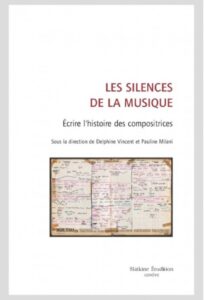
The silences of music. Writing the history of women composers, edited by Delphine Vincent and Pauline Milani, 142 p., Fr. 26.00, Éditions Slatkine, Genève 2024, ISBN 978-2-05-102943-8
Caroline Charrière, who died too soon in 2018, aged just 58, was part of the first generation of Swiss women to begin their adult lives as eligible citizens, eligible to vote and equal to men in law. At the time, however, it was still difficult to accept oneself as a composer, in order to overcome prejudice. In a book recently published by Editions Slatkine, musicologist Irène Minder-Jeanneret, who knew the Fribourg-born musician personally, recounts her life's journey, a gradual rise from obscurity to the limelight during which she had to tame and overcome her fragility, unease and anxieties, the consequences of traumatic experiences and hypersensitivity. Initially an excellent flautist, before also taking up choral conducting and composition (thanks to the decisive impetus of Jean Balissat), music was her salvation, giving her the opportunity to express what she could not say in words, helping her to socialize, to build herself up, to want to live life to the full, and to be able to assert herself as an important and engaging creator, whose works are not about the spectacular, but about sharing and emotion. Prefaced by Pierre Wavre, her attentive and benevolent flute teacher, this biography is both a tribute written with empathy and, although there is no developed analysis, an incentive to discover the many and varied scores of Caroline Charrière, who, as much in love with freedom as she was demanding of herself, declared that she "aimed for extreme authenticity".

Irène Minder-Jeanneret: Caroline Charrière, composing to tell the truth, 320 p., Fr. 35.00, Éditions Slatkine, Genève 2024, ISBN 978-2-8321-1350-9






